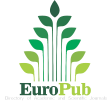"Priorities Were Chosen by Donors” - A Critical Review of International Media Assistance in Afghanistan (2001-2021)
DOI:
https://doi.org/10.60678/gmj-de.v15i1.353Keywords:
International Media Development, Afghanistan, Media Assistance, Media for Development, Donor-Driven AgendasAbstract
This study presents findings from research on international media development strategies and practices in Afghanistan between 2001 and 2021. Based on qualitative interviews with 35 Afghan journalists in Afghanistan, the research offers a retroactive assessment of key patterns in International Media Assistance. The findings indicate that prevailing media assistance strategies, as perceived by interviewees, were largely aimed at changing attitudes and behaviors through media programs. This reflects a media-centric paradigm in which people are viewed as passive recipients of information rather than active agents of change. Interviewees also noted that the international community underestimated the divide between liberal urban communities and conservative rural communities. Media programs often targeted liberal, urban youth, further jeopardizing social cohesion in Afghanistan. Future programs should prioritize citizen engagement in public affairs through the media to help counter the widespread perception that decisions are made elsewhere. Participatory approaches should also include conservative communities, as a sole focus on liberal urban elites has been seen as deepening social divisions.
Downloads
Published
How to Cite
Issue
Section
License
Copyright (c) 2025 Hazrat Bahar, Anja Wollenberg

This work is licensed under a Creative Commons Attribution 4.0 International License.








